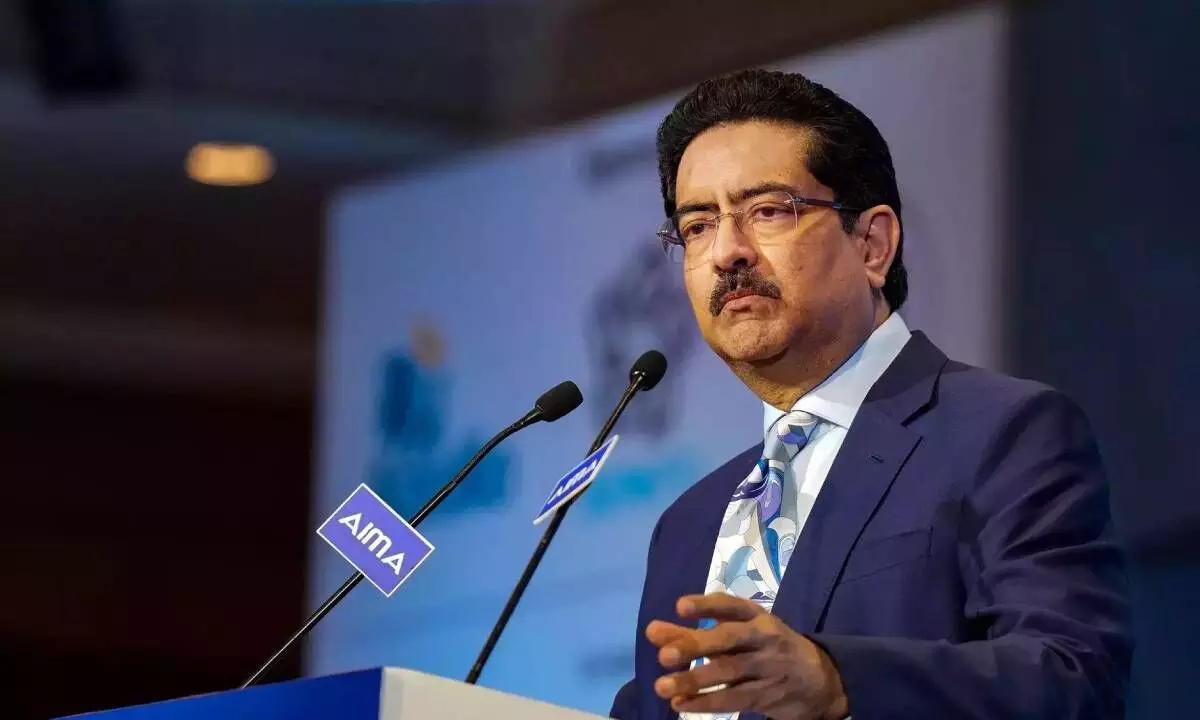Pvt capex rising on policy push: Birla
Says India leads global economic evolution; decadal reshaping of supply chains is underway
image for illustrative purpose

New Delhi India’s economic narrative paints a much brighter picture and the central government’s push towards infrastructure and pragmatic policies have led to a surge in capital expenditure by private sector, said industrialist Kumar Mangalam Birla.
In the grand theatre of global economic evolution, India stands not as a mere spectator, but as a charismatic lead, said Birla in his address to shareholders of UltraTech Cement in the company’s latest annual report.
“With a government-led push to infrastructure investments and pragmatic policies such as the production-linked incentives scheme, private capex has seen a surge. This rise triggers a multi-year boom, providing valuable support to economic growth in the face of softening global demand,” he said.
As global corporations start to look at countries across Asia as part of their ‘China plus one’ strategy, India is well-positioned to benefit.
“Supported by the dynamism of its tech-based ‘new economy’ enterprises and the expanding digitisation across sectors, India’s growth momentum continues to strengthen,” said Birla, who is also the chairman of UltraTech Cement.
Now, a decadal reshaping of supply chains is underway, he said, adding that now inflation seems to have peaked globally and in India.
“Easing inflation, robust foreign exchange reserves and improving bank assets quality provide a sizable cushion against potential destabilising events in global markets,” he said.
RBI has projected India’s economy to grow at 6.5 per cent in FY24, which demonstrates the nation’s resilience amidst subdued global economic conditions, he added.
“A key component of the rise of any industrial ecosystem is the presence of a confident and skilled workforce. This year, India surpassed China in population, and already has the largest and youngest working-age population globally,” Birla said.
The lessons learnt from the transformations of other economies through the last few decades point to the importance of this demographic dividend, he added. While talking about the global economy, Birla said it continues to pull itself out of the pandemic-triggered shock.
“It does so amid a complex environment marked by the ongoing conflict in Ukraine, geo-economic fragmentation, soaring interest rates, and looming risks of a banking contagion,” he added.
Reflecting these concerns, the International Monetary Fund (IMF) expects global economic growth to dip from 3.4 per cent in 2022 to 2.8 per cent in 2023. Developed countries are predicted to experience a more pronounced deceleration. On the brighter side, China’s economy marches towards normalisation following the lifting of its Covid-related restrictions.
“Both China and India are set to significantly contribute to global economic growth in CY23, providing a much-needed stimulus as developed economies grapple with challenges,” the leading industrialist said.

